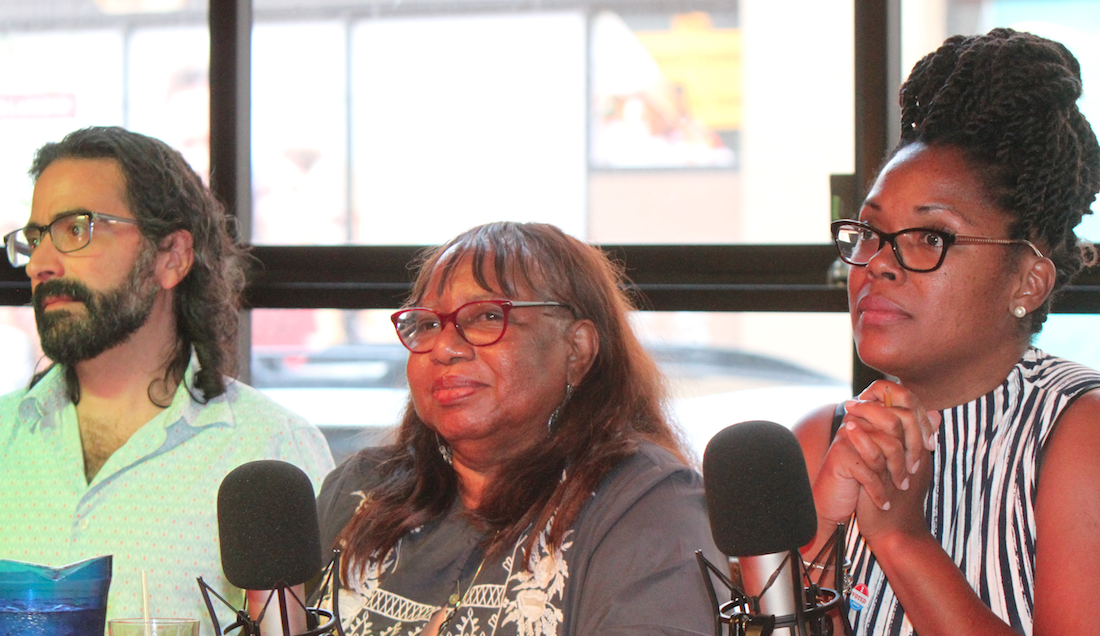Inaugural 'Views and Brews' addresses racism, other issues

YOUNGSTOWN
There was standing room only for a forum on racism, white supremacy, anti-Semitism and xenophobia during the City Club of the Mahoning Valley’s inaugural “Views and Brews” discussion series.
Monday night’s event at Suzie’s Dogs & Drafts featured three panelists, all Youngstown State University faculty: Jacob Labendz, director of Judaic and Holocaust Studies; Dolores Sisco, director of the American Studies department; and Tiffany Anderson, director of Africana Studies.
Tim Francisco, YSU English professor and a co-founder of the City Club of the Mahoning Valley, moderated the forum.
“We wanted to have a conversation regarding race, class and anti-Semitism for some time,” Francisco said. “The events surrounding Charlottesville [Va.] made the need for the conversation more urgent.”
One person was killed and several injured when white nationalists and counterprotesters clashed in Charlottesville in mid-August.
Throughout Monday evening, the panelists discussed white privilege, structural racism, the rise of anti-Semitism from the alt-right, free speech and media portrayals of African-Americans throughout history before taking questions from the audience.
Responding to a question concerning white privilege – the idea that American society is structured in a way that inherently benefits white people and creates obstacles for people of color – Anderson said one of the difficult aspects of discussing white privilege is those who benefit often are unaware that they’re benefiting.
She said being aware of one’s racial identifiers is much more common for black individuals than for white individuals as American society has been built to recognize “whiteness” as normal.
Responding to a question concerning free speech, Labendz said the monetization of hate speech through online content platforms such as YouTube and Twitter should be stopped, and that doing so would not be a violation of free speech as the First Amendment protects individuals from government censorship but not ramifications from private entities.
Though the discussion drew a large crowd, Anderson recognized many of those attending were individuals who already agreed with the drawn conclusions.
She suggested those interested in engaging beyond having discussions about racial equality participate in the upcoming Ohio Nonviolence Week beginning Oct. 1.
 43
43
